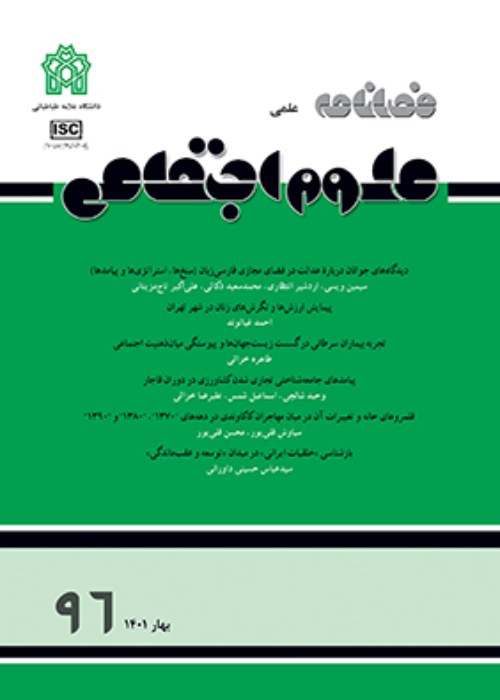Discourse of Justice in the Development Plans Bills since the Islamic Revolution: With an Emphasis on Reducing Poverty and Deprivation
The present study analyzes the discourses of social justice using Ernesto Laclau and Chantal Mouffe's discourse theory, with reducing poverty and deprivation as the central sign in the First to Fifth Development Plans Bills (approved in the three governments of Hashemi, Khatami, and Ahmadinejad). It aims at revealing the differences in approach, policymaking, and function of the discourses through studying the main signs and specific articulations of each discourse and exploring the effects of non-discursive factors on every discourse. The results of the discourse analysis of the texts indicated that the Construction Government, with its hegemony over the political and social space of the country, attempted at othering of the government of Mousavi through criticizing the representation of social justice in the first decade of the Revolution, and its principles and indicators, especially with regards to the payment of subsidies by the government to the people. It presented a new representation of social justice, which was highly influenced by the post-war political and social space of the country, the necessity of reconstruction of damages caused by war, economic reform of the country, and move towards economic growth in order to obtain the financial resources required for the construction and reconstruction of the country. Accordingly, a new economic concept, with economic growth as its primary indicator, was introduced by the government in representation of the floating signifier of social justice. The reformist discourse, with an emphasis on political development, proposed the association of political and economic development necessary for the realization of the floating signifier of social justice with reducing poverty and deprivation as the central sign. The last hegemonic discourse in the Islamic Republic of Iran, known as the discourse of justice-oriented Principlism, attempted to implement the economic development plan through othering the previous discourses and proposing a specific definition of the floating signifier of justice. In this level, with regards to the represented concept of social justice in this discourse, which involves equal distribution of opportunities and facilities among people and regions of the country so that all parts of the country can develop together and coordinately, the government of Ahmadinejad placed on its agenda, alongside the targeted subsidy plan, a new kind of privatization, which involved the payment of justice shares, i.e. distribution of shares of public companies among people instead of transfer of those companies to individuals.
- حق عضویت دریافتی صرف حمایت از نشریات عضو و نگهداری، تکمیل و توسعه مگیران میشود.
- پرداخت حق اشتراک و دانلود مقالات اجازه بازنشر آن در سایر رسانههای چاپی و دیجیتال را به کاربر نمیدهد.



